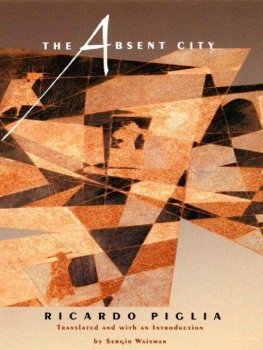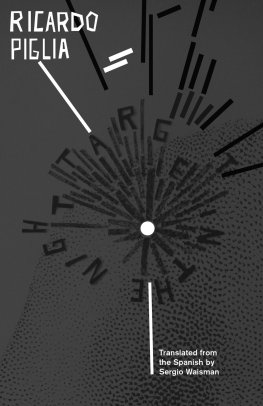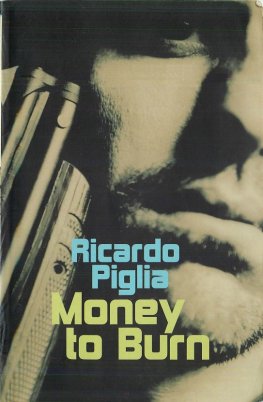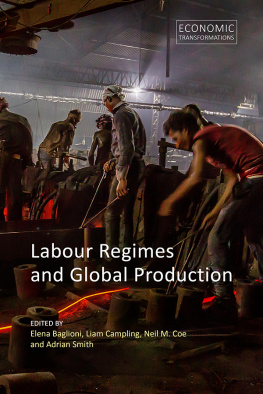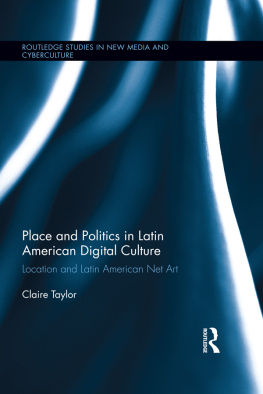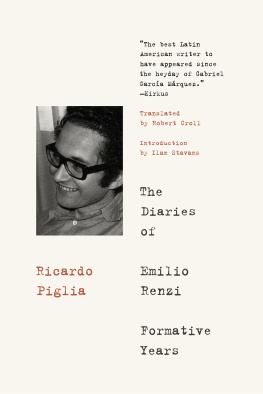Ricardo Piglia
The Absent City
Sergio Waisman
The Absent City is Ricardo Piglias third book to be translated into English, and the second published by Duke University Press. Since its original publication in Argentina in 1992, it has been widely read and hailed in the Spanish-speaking world for its combination of literary innovation and poignant sociopolitical reflection. With this translation, Duke makes available to an English-speaking audience one of the most fascinating novels to come out of Latin America in recent times.
Ricardo Piglia and His Work
Ricardo Piglia was born in Adrogu, in the Province of Buenos Aires, in 1940. His first book, a collection of short stories entitled Jaulario (La invasin in the Argentine edition), received an important prize from the Casa de las Amricas in 1967. Since then, he has published three collections of short storiesNombre falso (1975), Prisin perpetua (1988), and Cuentos morales (1994) and three novels: Respiracin artificial (1980), La ciudad ausente (1992), and Plata quemada (1997), which won the Premio Planeta that year. He has also published numerous critical articles, including three editions of the collection Crtica y ficcin (1986, 1990, and 1993). His latest book is Formas breves (1999), a collection of short, critical narratives. In recent years, Piglia has also worked on several film projects. Among others, he has written the original screenplay of Foolish Heart, directed by Hctor Babenco, and a screen adaptation of Juan Carlos Onettis El astillero. In addition to English, his fiction and criticism have been translated into French, Portuguese, German, and Italian.
Nombre falso (Assumed Name), a collection of five stories and an eponymous novella, marked an important point in Piglias trajectory and established his international importance with striking singularity. My translation of Assumed Name was published by the Latin American Literary Review Press in 1995. In the novella, the author himself is the protagonist attempting to solve the mystery of an unpublished manuscript allegedly written by Argentine writer Roberto Arlt. In the first part, Homage to Roberto Arlt, fiction doubles as literary criticism as Piglia reworks a genre best exemplified by the stories of Jorge Luis Borges. The second part of the novella then produces the mysterious manuscript, Luba.
When Assumed Name appeared for the first time in Argentina, Mirta Arlt, Roberto Arlts daughter, called Ricardo Piglia on the telephone to tell him that she did not know of this story by her father, and that Piglia should not have published it without her permission. In the United States, Luba was cataloged by the Library of Congress with Roberto Arlt as its author, and remains miscataloged to this date. These anecdotes underscore the importance that issues of originality, translation, and recontextualization play in Piglias work.
When Duke published Piglias first novel, Respiracin artificial (Artificial Respiration) in 1994, it brought to an English-speaking audience, in a translation by Daniel Balderston, one of the most important Latin American novels from the 1980s, and perhaps the most important one from the dirty war period in Argentina. Artificial Respiration contains many levels of ironies and double entendres, of mystery and displacements. The narrator, Renzi (a character who appears in much of Piglias work), is searching for his uncle, who has vanished, and the search leads to a series of revealing conversations about history, exile, and literature. Written at a time when Argentina was living through the most repressive military dictatorship in its history, when thousands of citizens were disappeared by the government (facts not explicitly mentioned in the novel), Artificial Respiration displaces the focus and discusses Argentinas nineteenth-century political turmoil, including Rosass dictatorship in the first half of that century. At a time of active censorship by the military regime, the novel has a character who is a censor trying to decipher supposedly coded letters and messages.
Plata quemada (Burnt Money), not yet available in English, is a fast-paced, exciting novel that revolves around the disturbing crimes of two extraordinary characters, who seek to escape the police after they rob a bank. Burnt Money explores the relationship between these two marginal personalities, as well as the connections between crime and community, between money and identity.
The Absent City: The Seduction of the Story
The Absent City is a captivating novel that makes use of several literary genres. On the one hand, The Absent City resembles a detective novel: Junior, the son of English immigrants in Argentina, is a newspaper reporter trying to solve the mystery of what is happening in the city of Buenos Aires. But it is much more than a detective novel, as, in a sense, the city becomes a metaphor for the novel, and vice versa. The world in which Junior operates is a futuristic Buenos Aires, in which the map of the city is constructed by a series of fictional narratives. The intrigue of each of these stories (written in different tones, or registers) multiplies as they intersect each other (like streets and avenues of a city) and unfold to make up the enigma of the text (the written, as well as the geographic and political text) that Junior is trying to solve.
At the heart of the novel and the city is the unusual heroine, Elena, who used to be a woman but is now a machine (she is the center of the novel and the city, since she composes the stories that make up both). Elena was Argentine writer-philosopher Macedonio Fernndezs wife. In the novel, he tries to save her, when she becomes terminally ill, by placing her memories in a machine. Thus under the surface there is also a story of love and loss. A man loses the woman he loves; he cannot bear that loss; therefore he builds a machine to try to preserve her memories; the machine then outlives the man.
All this occurs in a city under intense police surveillance. The repressive setting reminds the reader of Argentinas deeply troubled military past, especially the period of dictatorship from 1976 to 1983. But it also has a broader resonance with the dangers of all totalitarian regimes, and some of the twentieth-century atrocities associated with them. Thus another theme that arises is the power of language to create and define reality the States official version of history; a machine that creates stories that become real; the attempts of the police to control the flow of information; a world in which people tell stories in an attempt to rewrite history or to prevent others from writing it for them. The proliferation of stories in The Absent City becomes important as a way to challenge official versions of reality. Through a series of reproductions, translations, simulacra, and simulations, narrative becomes a site of political and aesthetic resistance.
The different genres that make up the novel detective, love story, political or historical, science fiction interrupt and cross each other (like the different narrative lines) to rupture the traditional form of the novel, constituting an important aspect of Piglias innovation. More than a combination of genres, of story lines, we end up with a distorted or, better yet, fragmented recombination. No single genre or narrative line can contain the entire novel, and yet each one tries to tell a similar story, even as they point in different directions. For example, one might be tempted to think of The Absent City as a political novel, because of its specific historical references and allusions. But the text also works with a series of paranoid delusions, in which it is impossible to ever determine whether the subjects are truly the victims of a larger conspiracy or whether this belief is a product of their own minds.

